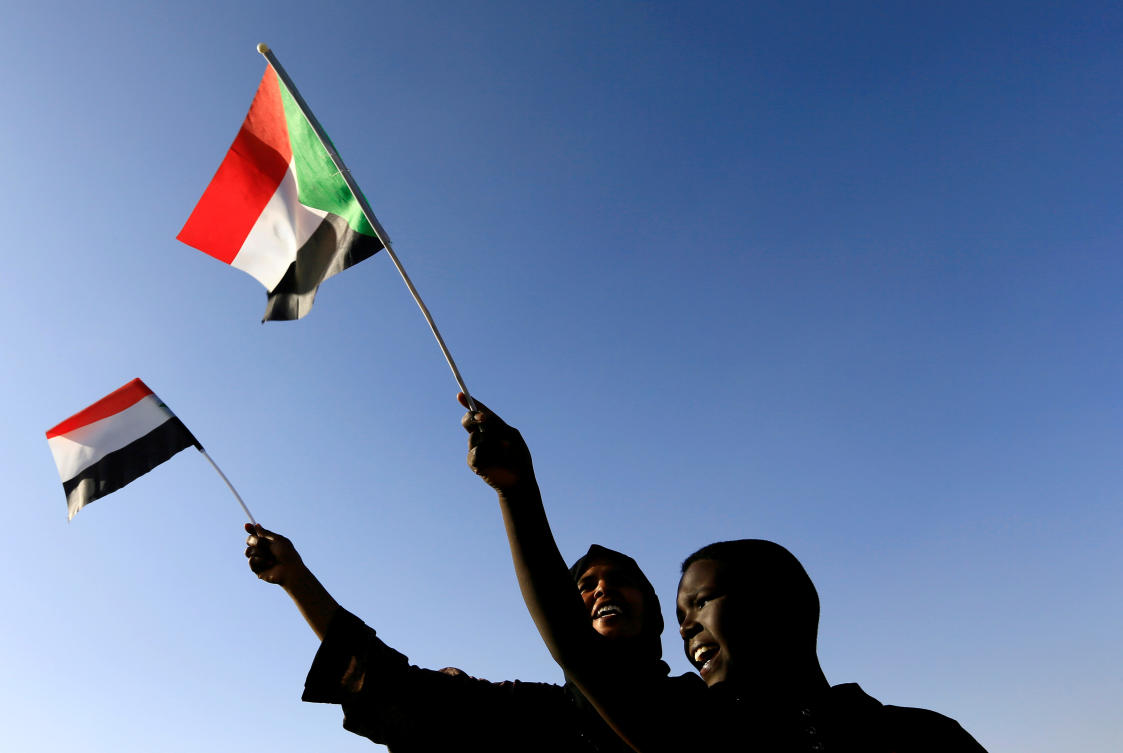BAGHDAD: Close to Baghdad’s protest hotspot of Tahrir Square, a sandy Tigris River bank offers some relief from the revolution: youths kick around footballs and smoke shisha pipes to booming hiphop music.
It is on this half-kilometre (500-yard) stretch where the post-Saddam generation celebrates its uprising on the beach, escaping the teargas and bullets for a fun and festive atmosphere.
“Our leaders have deprived us of everything — our rights, our money, our dignity,” says Ammar Saleh, 20. “Here we simply discover the taste of freedom.”
Unemployed and penniless, another man here, Ali, is intoxicated by the wind of revolt that has swept through Iraq since early October in the biggest wave of street rallies since the 2003 US-led invasion.
“We have nothing left to lose, we will not move as long as the thieves in power don’t leave office!” he says with fervour, then returns to his football game.
“Tahrir Beach”, as its occupants call it, has maintained the carnival-like atmosphere of the protests before they were marred by bloodshed and fear.
“This is where you find the magic of the early days of the movement,” says journalist Ali, a regular visitor.
In the almost three months since the rallies started, about 460 people have been killed and 25,000 wounded. The initially self-managed camps at Tahrir Square have become more strictly organised and the carefree spirit has gone.
“There is less mobilisation, leaders have changed, militiamen and spies have infiltrated the demonstrators,” said Ali, who pointed also to the growing influence of supporters of Shiite populist leader Moqtada Sadr.
Tahrir Beach lies on the east bank of the Tigris, between the Al-Sinek and al-Jumhuryiah bridges, where security forces guard access routes into the locked-down “Green Zone” government and embassies district.
Along Rashid Street, centuries-old brick houses with elaborate wooden balconies, now mostly dilapidated, tell the story of the capital city’s past glory.
Bland modern buildings now mar the cityscape as do the concrete blast walls, covered with protest graffiti.
Red and yellow tuk-tuks – the three-wheeled taxis that have become a revolutionary emblem – pour their smiling passengers onto the stretch of river-front, to be greeted by rows of shisha water pipes.
Everywhere there are reminders of the “martyrs” who fell on the barricades: improvised mausoleums adorned with now wilted flowers, a construction helmet, a bloodied t-shirt.
Black, red and white Iraqi flags flutter in the breeze, alongside the inevitable FC Barcelona logo.
“Dumping garbage is forbidden,” reads a sign suggesting the civic-minded spirit of the “new Iraq”, even if litter on the ground suggests not everyone is on board yet.
Under Saddam Hussein and the civil war that followed it was unthinkable to wander around here, so close to the dictator’s palaces and then the headquarters of the US occupation.
“It was too dangerous! There were no people, just dogs at night,” recalls Ayman, a former resident of the area.
Now a new generation is reappropriating the river bank, as expressed in a slogan daubed on a wall: “We have cried so much, now we want joy.”
Indeed, even though it’s a short walk to Tahrir Square, the violence seems far away.
Three teenagers try to free a scooter stuck in the beach, the rear wheel spraying up sand. Youths with pulled-up pants play volleyball.
A temperamental sound system spits out Iraqi techno and the rap hit “I Got Love”, while a piece of linoleum serves as the stage for a hip-hop dance contest.
Bandanas wrapped around their heads, two guys pumped up with testosterone twirl and spin to the crowd’s applause.
The day before, a yoga class here produced photos of bulked-up and beared men performing the one-legged downward-facing dog pose, sparking delight on social media.
The crowd remains predominantly young and male — and poor.
One young man, 26-year-old Sofiane, his arm deformed by polio, says he has “never received the slightest allowance” but expresses hope the demonstrations will “change everything”.
A group of girls stroll past, their long black hair blowing in the wind. They receive discreet glances but no one bothers them.
The young ladies sip soft-drinks while squinting at guys with slicked-up hairstyles who are shaking their hips to the rhythm of a song that decries the “rotten politicians”.
As teenagers splash in the brackish river water and toddlers build sand castles, some incredulously film the relaxed scene with their smartphones.
“These scenes were unimaginable just a few months ago,” Ali marvels. His voice darkening slightly, he adds that he is “not sure it will last”.









